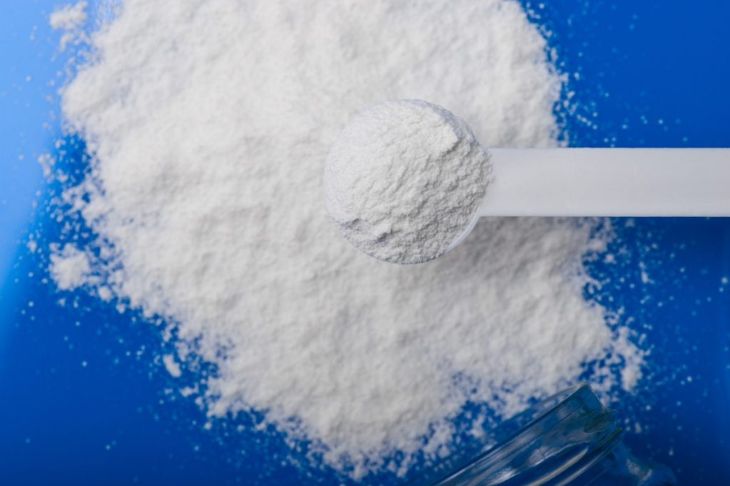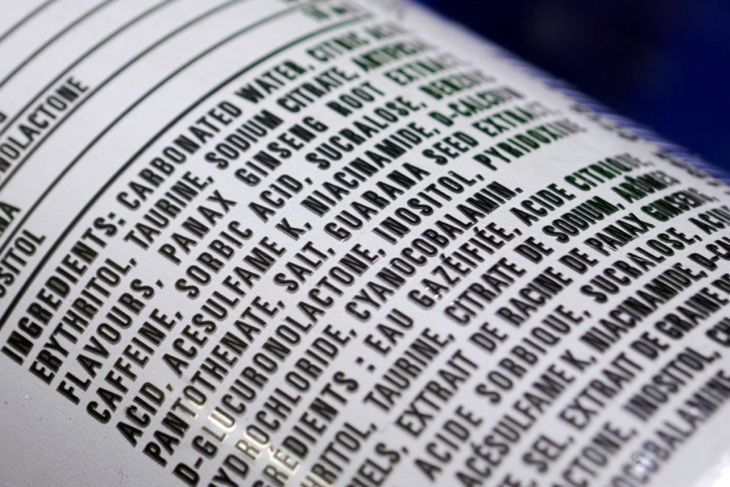Erythritol is an alternative to sugar that has gained immense popularity in recent years. Its reputation as a low-calorie sweetener makes it a favored option as a stand-alone product and as an additive to a host of low-sugar and sugar-free foods and beverages. Low-carb products and diets include erythritol to enhance sweetness and texture, as well. Where did this sugar replacement come from, and does it deserve its renown as a safe additive?
What Is it?
Erythritol is a sugar alcohol naturally present in some fruits and fermented foods such as grapes, pears, wine, cheese, and mushrooms. However, the versions of this white crystalline product that we see in marketplaces are manmade. Scottish chemist John Stenhouse discovered this polyol in 1848, and Japanese manufacturers commercialized it in 1990. The FDA approved its use as a food additive in America in 2001. This sweetener renders about 60 to 80 percent of the sweetness of refined sugar, and it is often one of many sweetening additives in processed foods.
How is it Made?
Manufacturers generally produce erythritol using glucose from corn or wheat starch. They treat the starch with enzymes to break it down into glucose. Mixed with yeast, the glucose then ferments into erythritol. Processors heat the fermented mixture to kill the yeast and dry the mixture to form crystals. They wash, redissolve, and purify the crystals until it is safe for use.
Benefits of Erythritol: Zero Calories and Carbs
For food-labeling purposes, erythritol contains no calories or net carbohydrates per gram. This is because the body absorbs and eliminates it quickly, without metabolizing it. Although this sweetener technically contains four grams of carbs in each teaspoon, its net carb total is zero because the body does not digest the carbs.
Benefits of Erythritol: Effect on Blood Sugar
Erythritol touts a zero glycemic index. A 1994 study published in the European Journal of Clinical Nutrition found the sweetener did not exert any effect on blood glucose or insulin levels. Since the sugar replacement does not cause a blood sugar spike or crash, it appears not to induce cravings or weight gain as much as sugar. This is a significant benefit for people at risk of developing diabetes and those with the condition already. This advantage also makes the sweetener a popular option for people following a low-carb diet.
Benefits of Erythritol: Dietary Advantages
Erythritol is not inherently nutritive; it does not provide any vitamins, minerals, proteins, or fiber. However, as a substitute for refined sugars, it can help lower the caloric intake in a person’s diet. The use of this sweetener can also counteract the urge to indulge in sugar-laden foods and beverages. Replacing sugar with erythritol may contribute to increased energy, stabilized weight, and lower triglycerides.
Benefits of Erythritol: Dental Health
Unlike sugar, erythritol does not promote tooth decay. Since the bacteria in our mouth cannot metabolize it, it does not facilitate bacteria growth that can lead to dental erosion. Regulatory authorities and scientists affirm the non-cariogenic property of erythritol. A 2016 Caries Research study suggested the sweetener may decrease the occurrences of dental plaque and cavities as well as the adherence of oral bacteria to the teeth.
Side Effects: Exposure to Unsavory Ingredients
Much of the erythritol found on grocery shelves originates from genetically modified corn or wheat. Some studies link GMO consumption to immune problems, infertility, inhibited insulin regulation, and accelerated aging. Suppliers often pair this sugar alternative with aspartame to increase its sweetness. Aspartame induces weight gain, depression, anxiety, fatigue, fibromyalgia, brain tumors, and many other maladies. The potential effects of erythritol produced from GMO crops and combined with unhealthy additives could lead to serious unforeseen health consequences.
Side Effects: Gastrointestinal Issues
Erythritol, like other sugar alcohols, may cause digestive upset in children and individuals with sensitive stomachs. Although the FDA has not set a limit or recommended daily amount, it is best to limit consumption of erythritol and any other non-nutritive additives. Nutritionists caution against ingesting more than 50 grams per day. High intake may lead to cramping, diarrhea, and bloating. People who deal with small intestine bacterial growth irritable bowel syndrome may want to limit or avoid their intake.
Side Effects: Allergic Reactions
Research highlights rare occurrences of severe allergic reactions to erythritol, including urticaria, wheezing, edema, excessive coughing, and hypoxemia. Specific cases note people who experienced anaphylaxis and hives after eating the additive. Experts recommend pregnant women and people who are sensitive to corn or wheat avoid this sweetener.
How can you use it?
Erythritol is widely available in grocery stores in granulated and powdered forms for use in cooking, baking, and stirring into hot and cold beverages. Some of the products recommend a one to one ratio replacement of sugar, although most advise one and one-third to one part sugar. Consult the packaging of your product or the manufacturer for suggested conversion rates. This sweetener is also an increasingly common ingredient in pre-made foods and drinks; check ingredient lists to find how much of the sweetener and other additives are present.

 Home
Home Health
Health Diet & Nutrition
Diet & Nutrition Living Well
Living Well More
More




















